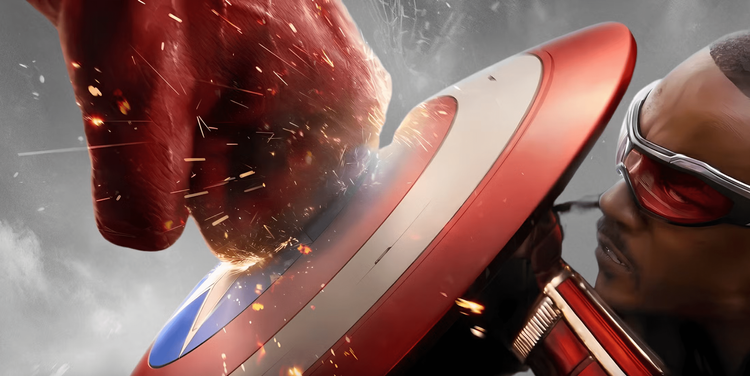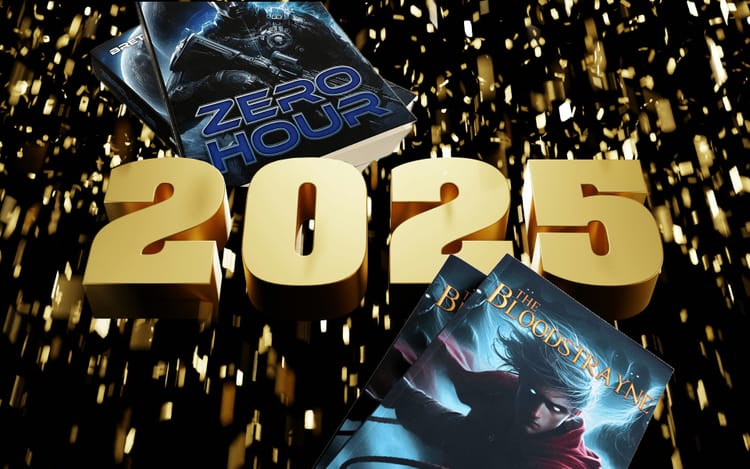Why Disney Should Do a Live-Action Remake of The Sword in the Stone

Very rarely do the Disney live-action remakes improve upon their animated predecessors. Almost every creative decision that was added to remakes such as Beauty and the Beast, The Lion King, and Aladdin were unnecessary and made them easily worse than the originals.
I recently watched Aladdin for the first time on Disney Plus, and all I could think throughout the entire excruciating experience was that this new Aladdin was basically a glorified Disney Channel TV movie.
With many of the original cartoons — like the ones I’ve already mentioned — they were nearly perfect from a creative and storytelling perspective, so there wasn’t really any room for improvement.
But then there are Disney classics such as The Sword in the Stone.
After watching the travesty that was Guy Ritchie’s Aladdin, I decided to watch the story about young King Arthur and the crotchety wizard, Merlin, in an effort to clear my head.
The Sword in the Stone, for the most part, is still just as enjoyable now as it was when I was a kid.
But now that I’m older and more discerning, I realized that out of any Disney cartoon classic, no story was more primed for a live-action update than The Sword in the Stone. (Interestingly enough, before working on this story, I didn’t actually know that The Sword in the Stone is already in some level of pre-production at Disney, though it’s been a while since there’s been any update on that front.)
Regardless of whether or not a live-action remake will actually get off the ground, there’s one big reason why the Sword in the Stone should be remade more than any other Disney cartoon.
Unlike many of the other classic movies which are — as I said, nearly perfect — the charming story of young King Arthur’s education is fundamentally flawed.
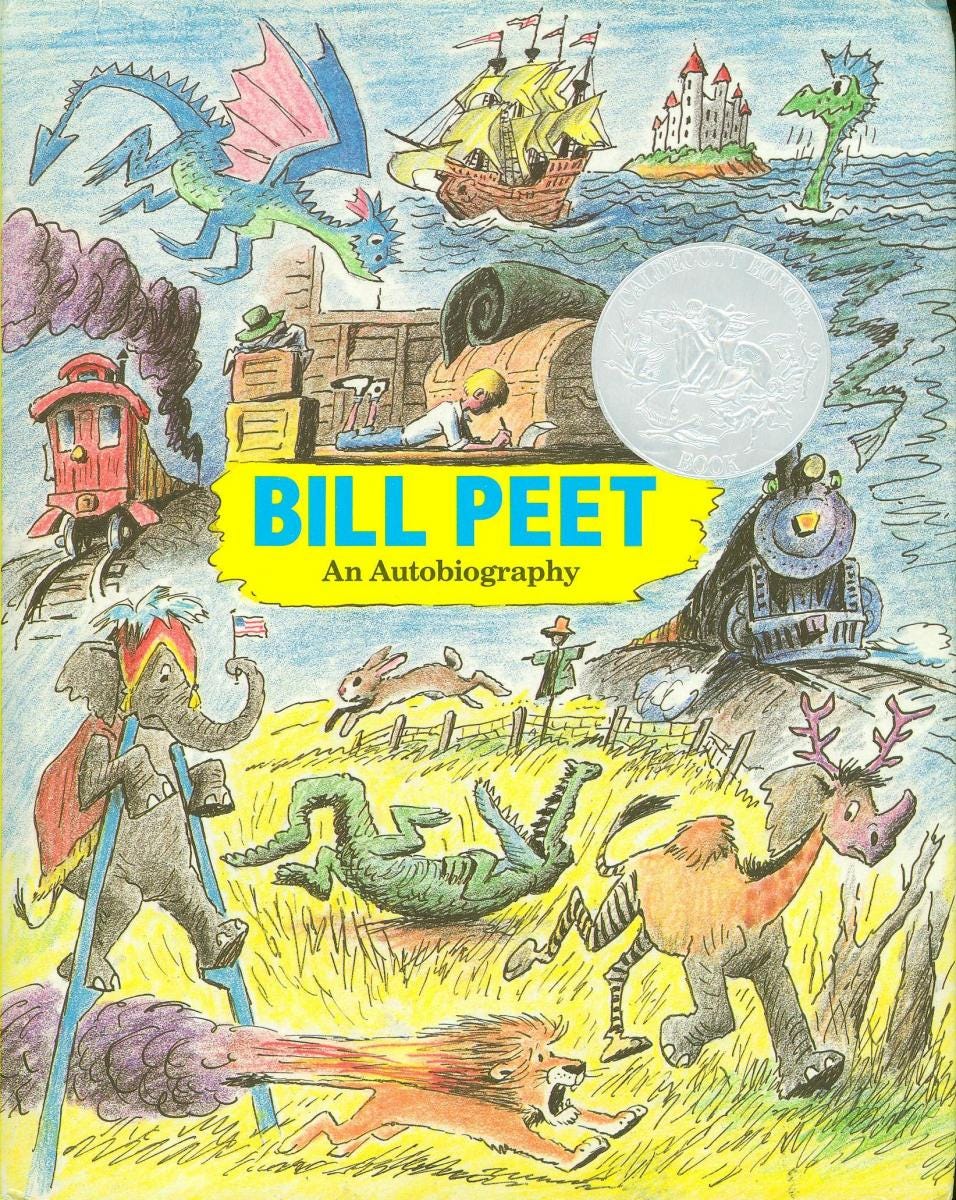
I’m a big Bill Peet fan who was the writer of The Sword in the Stone mostly due to his children’s books, so I always appreciated the story and the creative direction of the film.
Having said that, the story of King Arthur’s education at the hands of Merlin — while appreciated due to its focus on education and technology — doesn’t really go anywhere.
Throughout the story, Merlin is constantly telling young Arthur — or Wart, as he’s commonly called — to “use his head.”
Usually, this is accompanied by a battering on the young man’s head with the wizard’s crooked cane.
This version of Merlin is hilarious because he’s a paradoxical character. He’s a wizard who’s obsessed with technology and education, in spite of the fact that he’s a practitioner of magic who uses spells to get his way. In fact, he doesn’t teach Arthur anything about magic, which I much appreciated.
Instead, he teaches Arthur the laws of the natural world using magic.
His goal is to educate Arthur on how to “use his head” instead of relying on brawn like his older adopted brother, Kay.
Yet, in the end. Arthur never really has to use his head. He utilizes his obvious intelligence and natural physical skill as he traverses Merlin’s lessons that involve being transformed into forest creatures, but at the end of the story, it’s just by chance that Arthur suddenly finds himself king.
What this boils down to is that the film sets up foreshadowing for Arthur to have to “use his head” to progress as a character, but never does.
He just becomes king without even having to try.
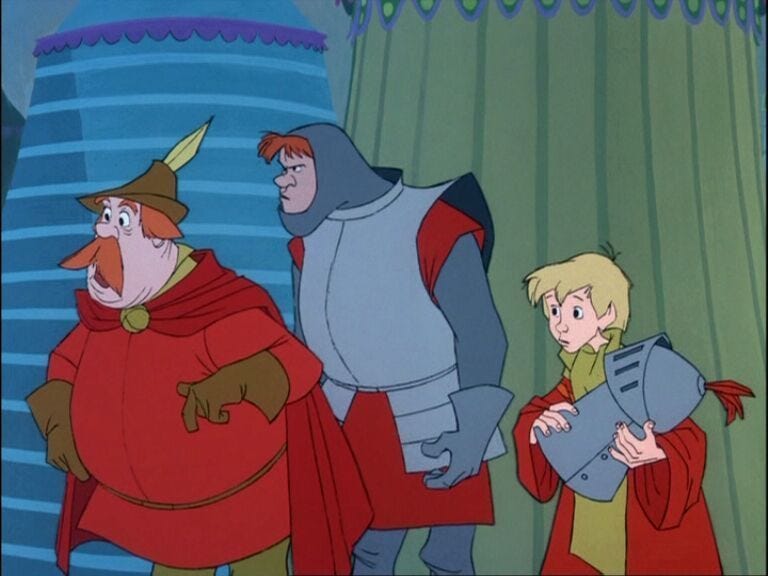
Up to this time in the story, Arthur is continuously belittled and bullied by his adoptive adopted brother, Kay. While Kay attempts to thwart Arthur from being named king by trying to pull the sword from the stone after it had already been pulled, he finds himself unable to do so, just like every other man who attempts it.
It instantly becomes clear that Arthur is “ordained by God” to be the new king. But without any further conflict, everyone bows, and Arthur is officially the new king.
It’s pretty abrupt and anti-climatic when you think about it.
But this got me thinking. If the Sword in the Stone ever actually does get remade, here is what Disney should do to improve upon the animated version. (The keyword here is “improve.”)
Instead of Kay bowing down to young Arthur and acknowledging his kinghood, he should challenge Arthur to a duel. (It should also be shown that up to this point, Kay was the leading in the games and that he was clearly going to win the championship. This way, Kay feels that Wart stole the crown from him.)
The onlookers should be split because while it appears that Arthur is “ordained by heaven,” many others are appalled at the thought of a child becoming the new king, so everyone compromises and agree that a duel is acceptable.
During the course of the joust and sword duel, Arthur has to take the lessons he’s learned from Merlin during their adventures as woodland creatures to outsmart the brutish Kay.
This duel between Kay and Wart should parallel the battle between Merlin and Mad Madam Mim. During the wizard’s duel between Merlin and Mim, Merlin has to continually outsmart the sociopathic Mim by keeping a level head and using the environment to his advantage.
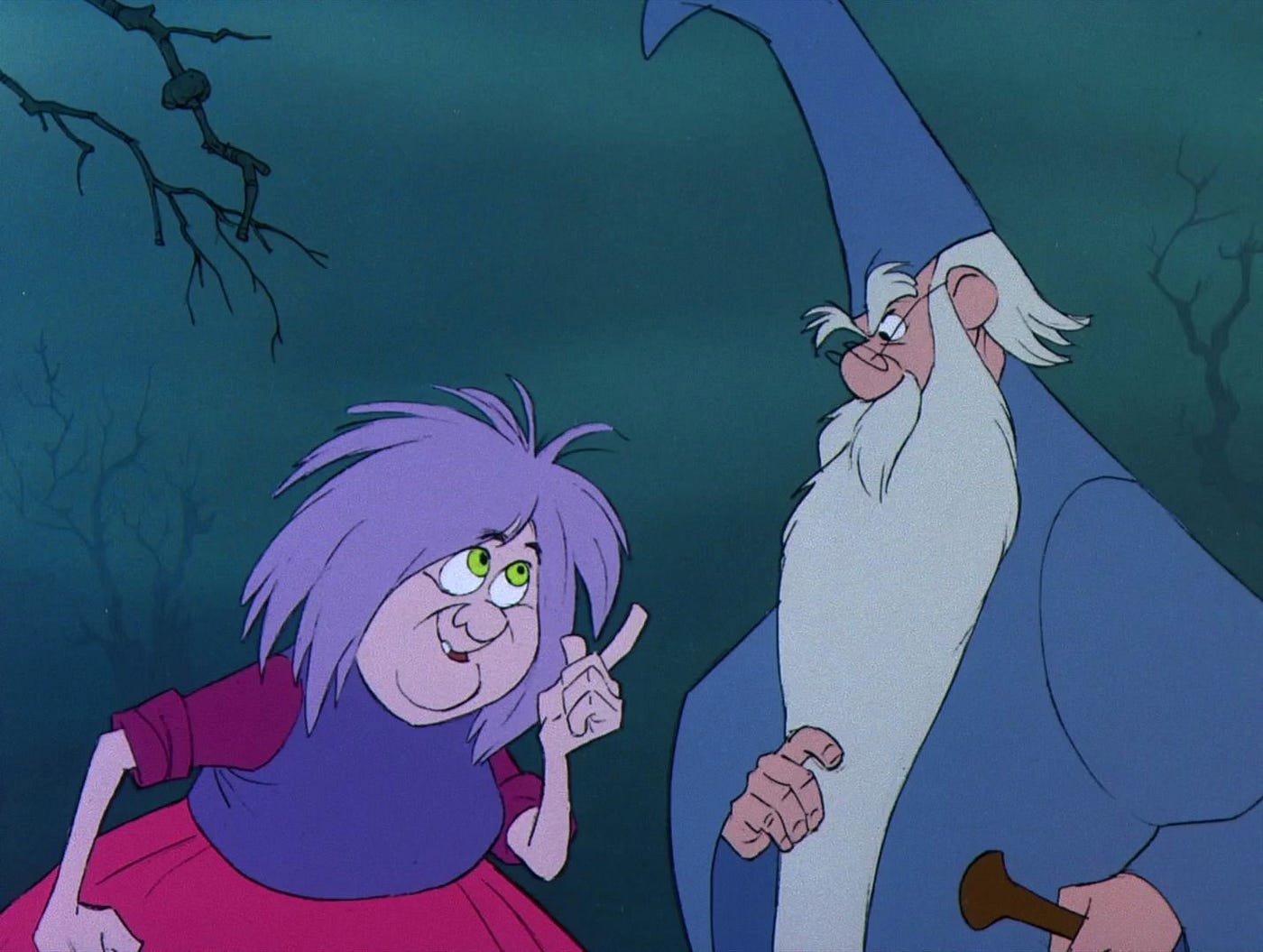
In much the same way, Wart should utilize Merlin’s lessons to defeat Kay using the same strategies that Merlin used to outsmart Mim in a David and Goliath-esque battle.
Of course, Arthur is victorious in the end, and only after Kay’s defeat does he truly earn his status as king. And due to his education at the hands of Merlin and his forgiving nature, Arthur forgives Kay for any wrongdoing, and Kay becomes the first knight of Arthur’s famed round table.
This simple change in the story wouldn’t be to simply drag out the runtime, but it would enhance the story because it would pay off the story’s foreshadowing in a logical way, because in the end, Arthur had to “use his head.”
Ultimately, there’s nothing wrong with the Sword in the Stone, except for the underutilized ending. So while I’m sick of remakes getting green-lit with no other purpose than to make money, with the Sword in the Stone, there’s a legitimate reason to remake such a story. If done correctly, it could be leaps and bounds better than the original.
Heaven forbid Disney actually proceeds forward with any more live-action remakes, but if they do, please focus on stories like the Sword in the Stone that can actually be improved upon, and not merely for the fact that they’ll make money.
And if Disney does indeed ever make this happen, please take it from me. Most of the story doesn’t need to change. It’s almost perfect.
Except for the ending.
Fix the ending.
And that’s it.




